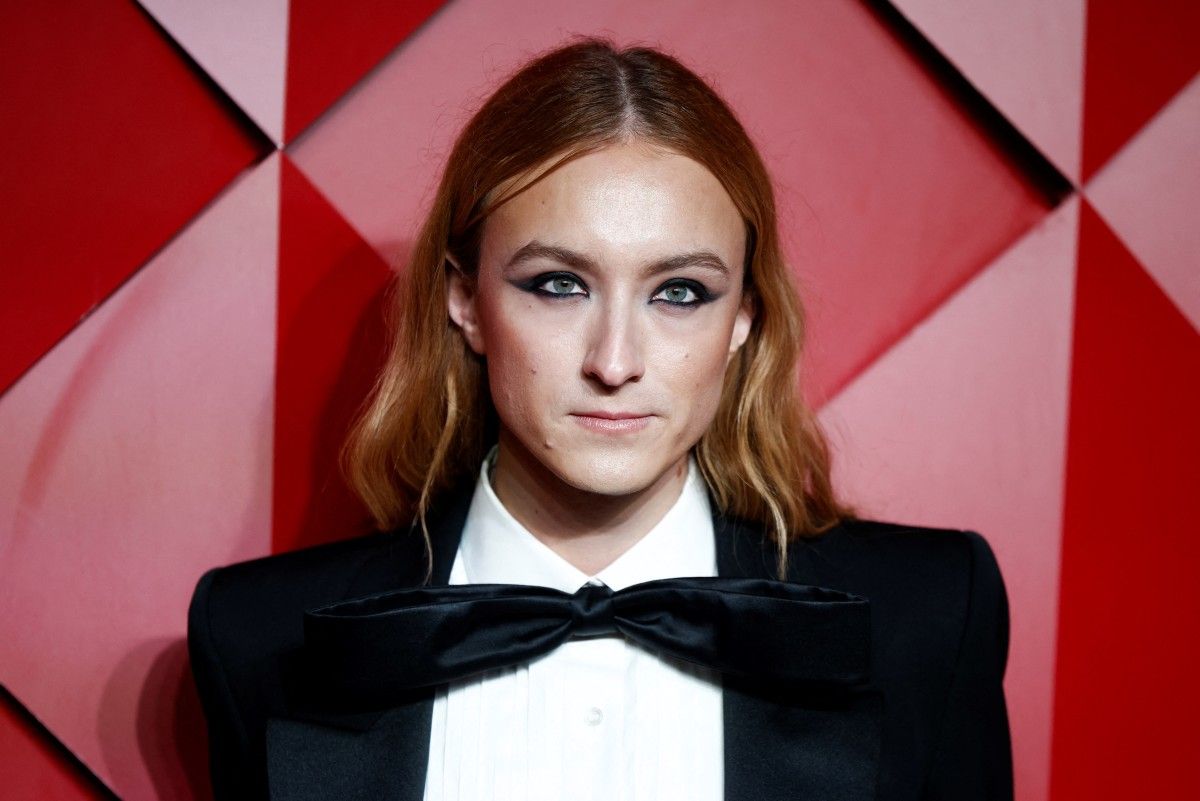
London Fashion Week opens with a shorter but impactful edition, highlighting innovation and commitment. From gender-fluid fashion to sustainability and notable absences, the event reflects the challenges and transformations shaping the industry.
London Fashion Week kicks off on Thursday evening with the theatrical designs of "queer" designer Harris Reed, launching four days of runway shows in the British capital. This season is a condensed edition marked by several absences.
The Anglo-American designer, who is also the artistic director of Nina Ricci, opens the event at the Tate Britain museum with his eponymous brand. Known for spectacular silhouettes, often topped with oversized halos crafted from wallpaper or repurposed interior fabrics, his work pushes creative boundaries.
The 28-year-old, famous for designing the crinoline skirt worn by Harry Styles on the cover of Vogue in 2020, champions a vision of "non-binary romanticism." His designs have captivated stars like Lil Nas X, Adele, and Beyoncé.
Until Monday evening, London’s runways will showcase the Fall-Winter 2025 collections of Erdem, Simone Rocha, Richard Quinn, Roksanda, and, finally, the iconic Burberry, which will close the event.
Burberry, renowned for its signature tartan, has been facing challenges, with rumors circulating about the possible departure of its creative director, Daniel Lee. Having been at the helm for just over two years, Lee has made efforts—albeit with mixed success—to modernize the brand.
JW Anderson missing from the lineup
According to several media sources, Lee might be replaced by British designer Kim Jones, who stepped down as the creative head of Dior Homme in late January after seven years.
Another notable absence this season is JW Anderson, the brand led by Northern Irish designer Jonathan Anderson, who is also the creative director of Spanish luxury house Loewe. Anderson’s name has been rumored as a potential new recruit at Dior.
Recently crowned Designer of the Year at the 2024 British Fashion Awards, Anderson was also absent from the men’s fashion weeks in Milan and Paris, where Loewe, part of the LVMH group like Dior, usually presents its collections.
For the first time this year, designers selected for the British Fashion Council’s (BFC) NewGen program must meet sustainability requirements in the production of their collections.
By implementing these new guidelines, the BFC follows in the footsteps of the eco-conscious Copenhagen Fashion Week, which introduced a similar policy in 2023.
The long-term goal is to extend these sustainability measures to all brands showcasing in London.
In November, the British Fashion Council also announced a ban on exotic animal skins, such as crocodile and snake, starting with the Fall-Winter 2025 season. However, the decision remains largely symbolic, as no London Fashion Week brands currently use such materials.
“A challenging time”
This edition is nearly a day shorter than the previous Fall-Winter 2024 Fashion Week, with the absence of designers like Molly Goddard and Sinéad O'Dwyer.
Designers such as Dilara Fındıkoğlu and Conner Ives, both part of this season’s lineup, have reduced their participation to just one show per year, while others have scaled down to intimate presentations or private dinners.
BFC Chief Executive Caroline Rush acknowledges that "this is a particularly difficult time" for British brands, which are still recovering from the impact of the pandemic, Brexit, and the 2024 closure of luxury e-commerce platform Matchesfashion.
"We are working closely with these businesses to help them navigate this period," she told AFP, emphasizing the importance of London Fashion Week as a platform that attracts influencers, journalists, and buyers from around the world.
"When I started 16 years ago, the first question I was asked was: 'Are Fashion Weeks still relevant?'" recalls Caroline Rush, who is set to step down from her role in the coming months.
"I believe they are incredibly relevant. In London especially, we have so many small independent brands, and they need a global platform to reach a wider audience," she continues. She will be succeeded by Laura Weir, creative director of British department store Selfridges and former British Vogue journalist.
The UK fashion industry employs 800,000 people and contributes nearly £30 billion (€36 billion) to the country’s economy, according to the BFC.
With AFP



Comments